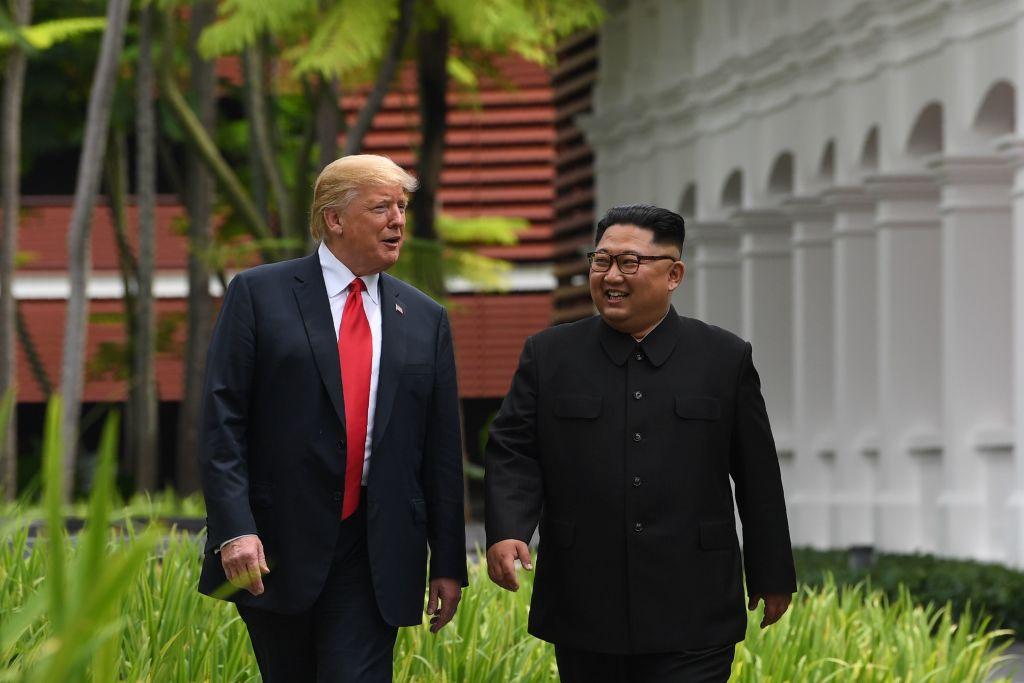South Korea-based online news site Daily NK reported Jan. 17 that smuggling activities at the border between North Korea and China increased after Kim’s visit to China in early January, citing multiple unnamed sources in the North Korean province of Ryanggang.
The January visit was Kim’s fourth visit to China since his first in March 2018. In all four meetings, Kim met with Chinese leader Xi Jinping.
Copper and zinc—common materials used in manufacturing—produced at North Korea’s Hyesan Mine, located in Ryanggang, are being smuggled “en masse into China,” according to Daily NK, due to the fact that North Korean authorities “have relaxed a bit” in their crackdown on smuggling.
Daily NK noted that the sales of North Korean minerals are a violation of international sanctions.
Several North Korean firms were named in connection with the mineral sales, including Kangsong Trading Company, Yonun Company, and Mirim Company—all of which had obtained the rights to export minerals on behalf of the North Korean regime, according to Daily NK.
At the same time, people living near the Hyesan Mine are selling excavated minerals themselves in order to earn a living.
State-Sponsored Smuggling
The North Korean military units and government agencies also are involved in mineral sales with approval from Pyongyang—in flagrant violation of sanctions, according to Daily NK. For example, the 8th General Bureau of the North Korean military, and the South Korean Liaison Office, have set up stations at a mine in Hyesan City in Ryanggang, to export the minerals to China.
About 70 percent of those minerals are zinc, copper, tungsten, molybdenum, magnesia clinker, gold, and silver, according to Daily NK.
In return, North Korea has imported diesel, petroleum, flour, soybean oil, sugar, and car and motorcycle parts from China.
According to Daily NK, locals in the region call the trade state-sponsored smuggling, since at least 30 trading companies in Hyesan were involved in the trade.
The United Nations Security Council passed Resolution 2321 in 2016, prohibiting North Korea from exporting minerals, including copper, nickel, silver, and zinc.
North Korea could also be violating UN Resolution 2397, stated Daily NK, which was passed in 2018 and limits North Korea’s imports of refined petroleum to 500,000 barrels per year.
This is not the first time that trade activity across the North Korea-China border saw an uptick following meetings between the leaders of both nations.
Following Kim’s third visit to China in June last year, unnamed sources told South Korean English-language daily newspaper Korea Times that Chinese police and border guards began “overlooking illegal trading activities” at areas near the Yalu River that separates the two countries.
The willingness of China to supply materials to North Korea, even in the face of violating U.N. sanctions, could handcuff Washington’s strategy in denuclearizing North Korea.
China’s motivation in supporting its northern neighbor is consistent with its past agendas: it wants to ensure that its communist ally does not collapse and that the country can be used as leverage in any future dealings with the United States.
In November last year, three companies—two based in China and the third in Singapore—were charged by U.S. federal prosecutors for running a sophisticated global money laundering network to move North Korean money into the United States and use the funds to buy goods for Pyongyang.





